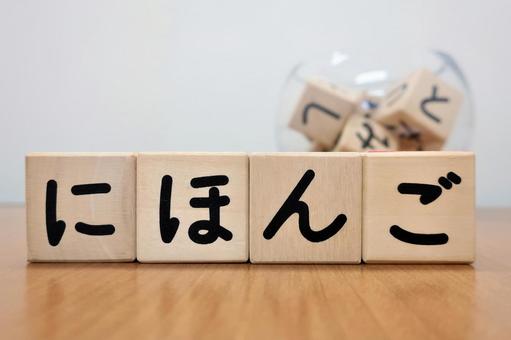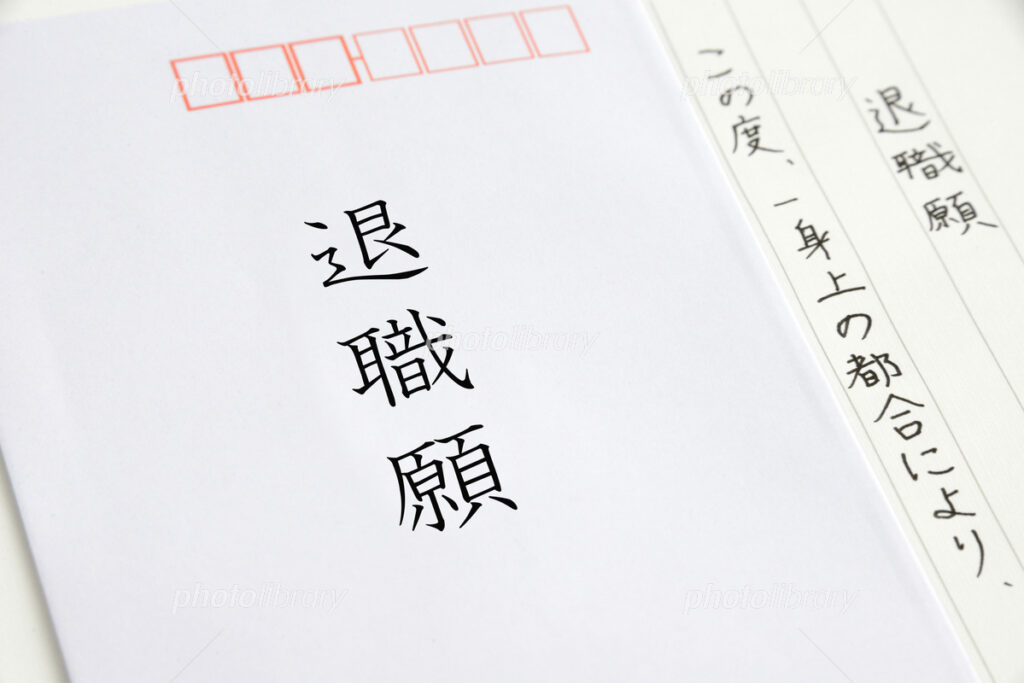2022.9.12
What will be asked at the interview in Japan? This is a Japanese Interview.

In this article, you will find questions that are actually asked during an interview, how to compose sentences that should be conveyed during an interview, and examples of sentences that can be used.
Please read it over and over again, as it will be very useful in preparing for interview interviews for employment in Japan and for changing jobs.
About the interview process

First, it is important to know the flow of the interview process.
Time required for interview: 30 minutes to 1 hour
Number of interview sessions: 2 sessions (1st session with HR personnel, 2nd session with the person in charge of the job site)
At the beginning of the interview, the interviewer will give a detailed explanation about the company and the job for which he or she is responsible.
You should chech these things first.
Is there a good match between your past experience and the job description?
Will I fit in well with the company?
One after another, the interviewer asks a variety of questions.
During the Q&A session, compnay will confirm that your character and if the company’s color match with you.
The main questions are related to work, such as what kind of work you have done in the past, and your previous work experience.
The interviewer will check to see if the position is a good match for your experience and skills.
It is a good idea to be prepared to share your past experiences and how you can contribute to the company in advabce.
If this is your first interview in Japan, or if you don’t know how to prepare for an interview, please click here.
The interview is the same as the Japanese test

The interview is an opportunity to confirm that the company and the applicant are a good match.
This is not a game where you have to answer the interviewer’s questions perfectly.
Applicants themselves have the right to choose the company they wish to work for.
Please imagine whether you can improve your skills by joining this company, and whether you will still be working there in five years’ time.
The stronger your desire to join a company, the more nervous you will be, and the less you will be able to make a successful presentation.
In addition, if you lie in the interview or exaggerate your experience, you may have a hard time finding a new job, or even if you got a new job, you may end up leaving the company soon after starting.
In the case of foreign nationals, it is not a matter of checking the experience or skills of the applicant, but rather how well the applicant can speak Japanese (communicate).
You may be thinking, “Isn’t the purpose of the interview to confirm that the applicant’s experience and skills match those of the position at the company?
However, while company can imagine to some extent the experience and skills of the previous job by looking at the resume, they don’t know the Japanese language ability, communication skills, and personality unless they meet directly with the person in question.
If the applicant’s experience and skills are sufficient to pass the document screening process, then it is now time to decide whether or not to hire the applicant after meeting him or her in person.
If you have passed the document screening process, you have passed in terms of skills, so please consider the next step to be the Japanese language examination (interview).
Self-introduction

Here are four questions that you must be asked by an interview.
In the interview, you will be asked to answer these four questions in detail.
Be prepared to explain in detail why you want to change jobs, why you want to work for this company, and how you will use your skills to contribute to the company.
① Self-introduction
Provide a simple and easy way to convey your personal history and background information.
②Change of occupation
Why are you changing the company and why can’t it be realized in reality with the current company?
③Reason for changing job
Why do you want to join this company and not another?
④Knowledge and experience that can be applied
How will you apply your past experience and experience to your company?
In the self-introduction session, you will be asked the following question
自己紹介をお願いします。
Please introduce yourself.
In the self-introduction session, create a written statement that includes the following points.
(1)Your name
(2)Country of origin
(3)Experience in your home country
(4)Experience in Japan
Please convey the above four things.
Please do not tell them anything that is not relevant to your work, such as what you learned at university in your home country, your hobbies, or the culture of Japan that you like.
The key is not to make it too short or too long. It’s good to put it together in about 1 minutes.
When the interview begins, first thank the interviewer for his or her time.
本日はお時間をいただき、ありがとうございます。
Thank you for your time today.
Before introducing yourself, please be sure to convey this first.
(1-2)Tell your name and country of origin as follows to them.
日本から来ました、田中と申します。
My name is Tanaka and I am from Japan.
(3) Next, you will tell them about your work experience in your home country.
Give a brief and concise description of the type of work you have done in your home country over a period of years.
日本では5年間、機械設計エンジニアとして自動車外装部品を設計していました。
I worked in Japan for 5 years as a mechanical design engineer designing automotive exterior parts.
(4) Finally, please give a brief and concise description of what kind of work you are currently doing in Japan.
現在は機械設計エンジニアとして外装だけでなく、内装部品の設計も担当しています。
Currently, as a mechanical design engineer, I am in charge of designing not only exterior parts but also interior parts.
When you have finished your message, close with, 【よろしくお願いいたします。】
Thank you very much for your cooperation.This is what it means.
Reasons for changing jobs

The purpose of the interview is to ascertain whether the applicant will be leaving the company within one year.
The reason for changing jobs should be positive, such as 【I would like to improve your skills or to advance in your career.】
This is an example of a job change reason.
私は5年間、自動車部品の設計をしてきました。今後はこの経験を活かしてEVなどの設計にもに挑戦したいからです。
I have been designing automotive parts for 5 years. I would like to use this experience to design EVs in the future.
The reason for changing jobs is to communicate how you will make the most of your experience and how you will make the most of your new job after you join the company.
Never complain about your current job.
The interviewer fully understands that the applicant is dissatisfied with his/her current job and salary, and wants to change jobs.
If there is no dissatisfaction, there is no need to change jobs in the first place.
If you complain too much, you may be afraid that if the same thing happens at a new company, you will quit immediately.
If you complain too much, you may be rejected by the new company because of a sense of distrust.
The following questions will be asked in the job change section.
転職理由を教えてください。
Please tell us why you changed jobs.
なぜ会社を辞めるのですか?
Why did you leave the company?
Next, we will show you how to create a reason for changing jobs.
Let’s follow this order in order to convey your reasons for changing jobs.
(1)The reason of changing jobs
(2)Explain in detail the reasons for changing jobs
(3)Give reasons why you cannot work at your current company
(4)Convey the reasons for changing jobs again
(1) First, tell them a conclusion first.
Please provide a brief description of the reason for the job change.
5年間働いてきた電子設計のお仕事に就きたいからです。
I want to work in the electronics industry, where I have worked for 5 years.
(2) The following is a more detailed explanation of the reason for this.
日本では5年間、電子設計のお仕事をしていましたが、今は生産管理のお仕事をしています。今のお仕事は嫌いではありませんが、私の長年の電子設計の経験を活かしたいからです。
I have been working as an electronic design engineer for 5 years in Japan, and now I am working as a production control engineer. I don’t dislike my current job, but I want to make the most of my many years of experience in electronic design and engineering.
(3) Tell them why you have to quit your current company.
上司に相談しましたが、電子設計のポジションは空いておらず、今の会社で設計はできません。
I talked to my supervisor, but the position of electronic design engineer is not available, and I cannot do design work at the company.
(4) Finally, here is the conclusion. Tell them the reason for this again.
なので、これまでの電気設計の経験を活かせる会社に入りたく、転職を考えております。
Therefore, I am considering changing jobs to join a company where I can make use of my past experience in electrical design and construction.
This is a review of the reasons for changing jobs.
The following are 4 points that you should include the reason why you want to change a job.
(1)The reason of changing jobs
(2)Explain in detail the reasons for changing jobs
(3)Give reasons why you cannot work at your current company
(4)Convey the reasons for changing jobs again
Proceed in this order please.
Reason for changing job

What the interviewer wants to know is why the applicant wants to join this company and not another.
Look at the website of the company you are applying to and consider the reasons why this company is the right choice for you.
The following questions will be asked during the application process.
なぜ弊社を志望したのですか?
Why did you apply to our company?
当社を応募した理由を教えてください。
Please tell us why you applied to our company.
This section explains how to create the reason why you want to apply for this company.
The following is the order in which you will convey it.
(1)What kind of work do you want to be involved in when you join the company?
(2)Explain in detail the reason for this
(1) First, you will tell them what you hope to accomplish at the new company.
御社の○○の設計に携わりたく、志望しました。
I would like to be involved in the design of your company’s __.
(2) Next, you will explain in detail why this is so.
私のこれまでの設計経験は御社のプロジェクトで貢献できると考えております。なぜなら御社のプロジェクトに似た仕事をしてきた経験があるからです。
I believe that I can contribute to your project because I have experience working on projects similar to those of your company.
Knowledge and experience that can be applied

This is where you tell the interviewer how you can use your past experience and what you can do with your past or current work experience and skills.
Be specific, concise, and succinct.
The following is a list of knowledge and experience that can be applied.
あなたは弊社にどう貢献できますか?
How can you contribute to our company?
あなたを採用するメリットは何ですか?
What are the advantages of hiring you?
Knowledge and experience that can be utilized should be passed on in this order.
(1)A simple and easy way to tell what kind of work you have done so far
(2)Explain how to make the most of this experience
(3)Finally, a word or two about your enthusiasm
(1) First, you provide information about your past experiences and capabilities (tools you can use, language, etc.).
これまで5年間、 Catia, Autocad nx, solidworksなどのソフトを使った実務経験があります。
I have 5 years of practical experience using software such as Catia, Autocad nx, and Solidworks.
(2) Next, you tell them how to make the most of this experience.
自動車部品の設計に携わってきたため、設計ソフトの素早い解析で貢献できます。また新人の教育にもたずさわったので、マネジメント経験も活かせると思います。
I have been involved in the design of automotive parts and components, so I can contribute to the company with quick and easy analysis of design software. I have also been involved in the training of new employees, so I believe I can make use of my management experience.
(3) At the end of the this session, you will say one word or phrase about your enthusiasm.
この経験を活かして御社に貢献したいです。よろしくお願いいたします。
I would like to contribute to your company by making use of this experience. I look forward to working with you.
Click here to learn about the questions you must be asked in an interview and how to answer them.
Advice on how to get a job offer

① Study and learn Japanese for use in interview .
As mentioned above, the interviewer will confirm the applicant’s Japanese language ability by conversing with the applicant about his/her career history.
It is important to be able to communicate with Japanese people.
Listen carefully to the interviewer’s questions and answer correctly.
Try not to give answers that do not make sense.
If you do not understand the question, please ask again.
It is not acceptable to give off-target answers without understanding the question.
It is not a problem to ask the question several times in order to fully understand the intent of the question. Avoid answering questions without knowing what you don’t know.
It is okay to ask the question again, but concentrate on listening so that you do not have to listen to the questions over and over again.
Read through the words the interviewer has said and try to imagine what the interviewer wants to say.
If you want to know the absolute best Japanese to use in a job interview, click here.
② Do not memorize sentences in the interview, but use your own words and phrases as much as possible.
It is very important to prepare for the interview by creating a written statement of what you are going to say.
But don’t try to memorize it.
This is because during an interview, you will be so nervous that you will forget the sentences you have memorized.
If you forget the sentences you prepared, your mind will go blank and you will panic.
In the end, it is hard to understand what you are trying to say.
Therefore, you should try to communicate in our own words as much as possible.
③ Speak clearly and confidently.
During the interview, make eye contact with the interviewer and answer the questions clearly.
The interviewer will be checking to see if the applicant is sociable and can clearly communicate his or her own opinions.
Avoid mumbling without smiling or using dark facial expressions.
These are the techniques for getting a job offer in an interview.
This article will help you think about the text you will use to convey your message in an interview.
Also, practice interview skills as many times as you can.
Even Japanese who are native speakers of Japanese will go through more than 10 rounds of interview practice.
The number of times you do practice sessions will increase your chances of getting a job offer.
Good luck with the interview!

